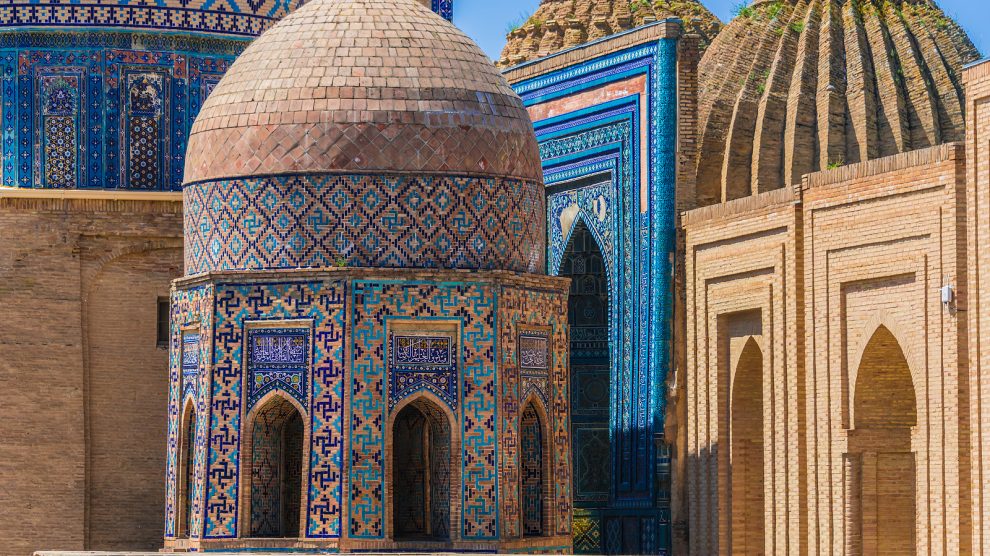Referring to Central Asia as ‘Russia’s backyard’ is a mischaracterisation that denies the region’s agency and overlooks the complexity of its international relationships.
Rarely, if ever, has there been so much global interest in the five countries of Central Asia—Kazakhstan, Kyrgyzstan, Tajikistan, Turkmenistan, and Uzbekistan.
It’s not difficult to see why. The region is rich in natural resources, including hydrocarbons and critical minerals essential for the global economy and the transition to clean energy.
Kazakhstan, for instance, is a leading uranium producer, and the region as a whole has substantial reserves of rare earth elements. These resources are crucial for the West in diversifying supply chains and reducing reliance on dominant players like China.
- Time to offer Kazakhstan a European perspective
- Kazakhstan could be key to Europe’s energy transition
- Economy in focus: Uzbekistan
Then there’s the region’s geographical position, which makes it a vital link in the evolving trade routes between Europe and Asia. With its Belt and Road Initiative, China has significantly invested in Central Asia’s infrastructure, enhancing its role as a transit corridor as global supply chains readjust in order to avoid transit through Russia. Central Asia’s reclamation of its historical role as a trade nexus aligns with Western interests in establishing resilient and diversified trade networks.
Western engagement in Central Asia also presents an opportunity to encourage positive developments in human rights and governance. Despite the region’s ongoing authoritarian leanings, there is potential for progress, and the West’s renewed interest coincides with a moment where strategic partnerships could leverage improvements in political freedoms, rule of law, and civil society engagement.
Nobody’s backyard
Confirmation of the region’s new importance—at least in Western circles—came in November last year when French President Emmanuel Macron made a visit to Astana and Tashkent, complete with an impressively–sized trade mission in tow.
“I don’t underestimate by any means the geopolitical difficulties, the pressures, that some may be putting on you,” Macron told Kazakh President Kassym-Jomart Tokayev in a clear reference to Kazakhstan’s neighbour, Russia.
Long occupied by the Soviet Union, Kazakhstan and Uzbekistan have both refused to support Russia’s war on Ukraine, nor recognise its annexation of Ukrainian territory, and have pledged to abide by Western sanctions against Moscow—a pledge currently honoured more in breach.
However, with the new attention thrust upon it alas come new misunderstandings about Central Asia. A wealth of otherwise worthy news articles published to coincide with Macron’s visit last year felt compelled to refer to both Kazakhstan and Uzbekistan as ‘Russia’s backyard’. The Wall Street Journal and Bloomberg were just two of the major news organisations that used the phrase.
Denying Central Asia agency
Referring to Central Asia as ‘Russia’s backyard’ is a mischaracterisation that overlooks the complexity of the region’s international relationships.
While historical ties to Russia are undeniable, the countries of Central Asia are sovereign nations (all five have been independent since 1991) with their own strategic interests which have increasingly sought to balance their foreign relations among various global powers, including the European Union, the United States, China, and regional players like Turkey and Iran.
Moreover, the term ‘backyard’ implies a lack of agency and a subordinate position that does not reflect the active role Central Asian countries play in regional and global affairs. The region’s leaders have engaged with Western counterparts, seeking investment, technology, and partnerships that align with their development goals and security interests.
Central Asia’s evolving relationship with the West is marked by mutual interests in security, economic development, and the diversification of alliances.
The region’s strategic location, abundant resources, and potential as a trade hub offer significant opportunities for Western countries. At the same time, Central Asia’s pursuit of balanced foreign policies demonstrates its desire to be recognised as an independent and influential player on the world stage, not confined to the shadow of any single power—least of all Russia.
Central and Eastern Europe is only now, 35 years after the fall of communism, finally shaking off the epithets ‘post-Soviet’ or ‘former-Soviet’.
It is to be hoped that Central Asia—with the global interest its now receiving—will not have to wait a further 35 years to shake off the notion that it is ‘Russia’s backyard’.
Unlike many news and information platforms, Emerging Europe is free to read, and always will be. There is no paywall here. We are independent, not affiliated with nor representing any political party or business organisation. We want the very best for emerging Europe, nothing more, nothing less. Your support will help us continue to spread the word about this amazing region.
You can contribute here. Thank you.


